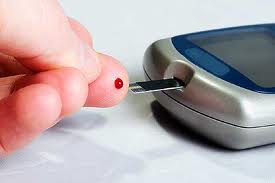 A study conducted on elderly (over 65) patients who had been diagnosed with Type 2 diabetes found that they were not as aware of their own hypoglycemic conditions as were middle-aged (age 39-64) patients.
A study conducted on elderly (over 65) patients who had been diagnosed with Type 2 diabetes found that they were not as aware of their own hypoglycemic conditions as were middle-aged (age 39-64) patients.
The objective of the study was to determine the subjective responses of elderly patients to hypoglycemic episodes. Such patients are at a higher risk for severe episodes, but their subjective evaluations of their own blood glucose levels had not been previously evaluated. According to the researchers, hypoglycemia is the limiting factor in the management of diabetes, and there is increasing evidence that hypgoglycemic episodes are an important factor in the management of Type 2 diabetes.
The study examined 13 older (over age 65) patients and 13 middle-aged (age 39-64) patients who had been previously diagnosed with Type 2 diabetes. None of the patients demonstrated any symptoms of neuropathy, heart disease, a history of stroke, or overt nephropathy, and none of the patients had experienced a serious hypoglycemic episode that required the help of another person within the last year before the study took place.
Patients were administered insulin and dextrose intravenously, with the controls for the administration located outside the room so the patients would be not be able to tell that they were receiving the substances. The patients were required to fill out a semi-quantitative symptom questionnaire, rating the severity of eleven symptoms of hypoglycemia including dizziness, tingling, blurred vision, difficulty to concentrate, faintness, anxiety, palpitation, hunger, sweating, irritability, and tremor. Once they were finished answering the questionnaire, the patients were asked to estimate their current blood sugar levels.
Researchers had also measured the patients’ reaction times using a standard vigilance task, requiring them to identify changes in frequency of a sound by pressing a button as quickly as possible.
Upon analyzing the results of the study, researchers found that baseline blood glucose levels did not differ between the older and middle-aged group reached a hypoglycemic plateau faster than the older group did. Baseline concentrations of insulin were also similar between the two groups. The results did show that the older patients failed to perceive neuroglycopenic and autonomic hypoglycemic symptoms that the younger patients identified. The researchers stated that the differences in subjective evaluations of hypoglycemic symptoms were not caused by alterations in neuroendocrine counterregulation since the hormonal responses were similar across both age groups.
The authors believed that more studies would be necessary to identify the reason behind the differences, stating that “The mechanisms underlying the severe impairment of hypoglycemia awareness in our older patients cannot be derived from our data.” However, they speculated that the brains of older patients showed a diminished capacity for perceiving its own cognitive and physiological alterations due to hypoglycemia. They suggested that the results had important implications for Type 2 diabetics and that elderly diabetics may be more at risk for severe hypoglycemic episodes since they are less aware of their own hypoglycemic states.
The study was authored by Jan P. Breber, M.D., with the Department of Internal Medicine I at the University of Luebeck in Germany; Kamila Jauch-Chara, M.D., with the Department of Psychiatry and Psychotherapy at the University of Luebeck; Manfred Hallschmid, Ph.D., with the Department of Neuroendocrinology at the University of Luebeck. Corresponding author was Bernd Schultes, M.D., with the Interdisciplinary Obesity Center at Kantonsspital St. Gallen in Switzerland.